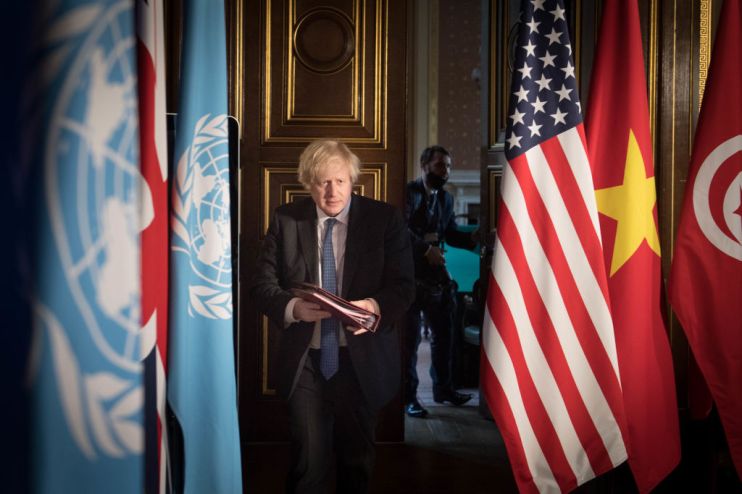COP26: Good fortune and lofty statements won’t tackle climate change, but business can

It is the lines of the hapless but heroic Ted Hastings, in Line of Duty, which so often steal the show. Hastings’ common refrain “now we’re sucking diesel” should set the scene for COP 26, the 2021 United Nations Climate Change Conference in Glasgow this year.
Taken literally, it is an outcome we badly need to avoid. Speaking figuratively, it is an Irish phrase, now mainstream thanks to the crime drama, which means when you strike good luck thanks to your own hard work. It is the opposite of crossing your fingers, saying a prayer, and hoping for the best.
What we do know is that if the answer to the planet’s woes rests on the shoulders of government alone then we are likely to be addressing ever worsening problems. This is where business needs to come in. If you are looking to get a job done, you would be better served looking for the answers beyond the conference chamber.
Look instead for the spirit of innovation. It’s called the Green Zone and it’s where business will gather to showcase its work. Put aside whether calling this area something that evokes the Baghdad diplomatic quarter after the Gulf War is a good idea, it will nevertheless be a showcase that is on a war footing to avert future disaster.
The big bet on the table is that business could be the catalyst for the change that the planet desperately needs. While politicians will no doubt evoke the spirit of noblesse oblige in the rhetoric, it will be companies that will show their quality and the commercial drive to find answers.
But to do this, climate change needs to be restated not only as a societal and ecological challenge but as the commercial opportunity of our lifetime. It won’t be good intention or lofty statements which will make the difference. It will be good business models,
The first step is that capital must follow this idea. It needs to be deployed on a previously unimaginable scale to drive huge levels of research, development and deployment. It’s a point picked up by Thomas Hale, co-author of a new report and Associate Professor at the Blavatnik School of Government. It reveals that one-fifth of the world’s largest companies now have net zero targets.
However, he rightly makes the point that “while the rapid uptake of net zero targets is encouraging, we need much more clarity from actors on how they plan to get there.”
Recently appointed Citigroup CEO Jane Fraser used her first day in the top job to spell out the bank’s plans to go net zero by 2050. Thus far, Citi have voted with their money, deployed hundreds of billions in “environmental transactions”.
This, Fraser noted, wasn’t enough. “Our ESG agenda can’t just be a separate layer that sits above what we do day-to-day,” she said.
“Our commitments to closing the gender pay gap, to advancing racial equity, and to pioneering the green agenda have demonstrated that this is good for business and not at odds with it,” Fraser added. Citi will lay out a roadmap in the months to come about how they will become net zero. This, rather than the initial pledge, will be when tectonic plates start moving.
If this Autumn is to be remembered, it must be for yet another moment of good intentions. The mood music is there. The World Economic Forum has started to call this time the Great Reset and that, of course, is what the planet needs.
But to do this, the franchise has to extend well beyond big government and big corporations. If the UK government is able to do one thing well with this conference it should be to show how enterprise and entrepreneurship will be a crucial cog in the wheel of change.
This is the case that must be made to ensure that it is deeds and not words that are delivered. And here is the why: vaccines.
This time last year Covid was the unbeatable foe and a successful vaccine was the pipe dream. The impossible rapidly has become the possible and we should take that same sense of can-do positivity all the way to COP.
Positivists will tell you that change begins with an idea that you can vision. Time and again it has been the story of how our best in business have triumphed against the odds. It’s time for this spirit to be the defining ideal for addressing climate change.